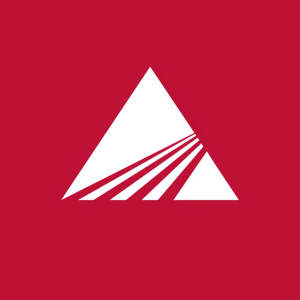TAFE Issues Letter to AGCO Shareholders Outlining Opportunities for Improved Corporate Governance and Enhanced Value Creation
Believes Shareholder-Driven Changes to AGCO’s Board and Strategy are Necessary Following Strategic Missteps and Execution Issues That Have Led to a Loss of Significant Market Share
Reiterates TAFE’s Commitment to Unlocking AGCO’s Full Potential as a Long-Term, Strategic Investor That is Firmly Aligned With Fellow Shareholders
***
September 30, 2024
Fellow Shareholders,
Tractors and Farm Equipment Ltd. (together with certain of its affiliates, “TAFE” or “we”) is the largest shareholder of AGCO Corporation (NYSE: AGCO) (“AGCO” or the “Company”), with ownership of approximately
Given our experience allocating capital and operating businesses within the agricultural machinery sector, we have firm conviction in AGCO’s future growth potential. As the Company has struggled in recent years to integrate acquisitions and expand into new markets, we have drawn on our experience to provide leadership with pragmatic suggestions. Unfortunately, AGCO has responded by ignoring these ideas, taking measures to disenfranchise TAFE, and isolating our representative on the Board of Directors (the “Board”). This seemingly unjustifiable intransigence has resulted in the deterioration of the Company’s competitive position and financial performance versus peers and is now forcing us to deviate from our preferred method of private engagement.
It should speak volumes about AGCO’s current state that TAFE, a long-term, strategic investor with an extremely patient outlook and no history of public activism, feels compelled to bring its concerns to fellow shareholders. AGCO’s issues have also led us to begin assessing the ways in which a strategic transformation can be implemented, with new and independent directors who possess the expertise required to lead a lasting turnaround. A thoughtfully restructured and more empowered Board will be best positioned to enhance governance practices, establish capital allocation and cost containment guardrails, prioritize operational excellence, and effectively supervise management.
There Is a Clear Need for Shareholder-Driven Boardroom Change
Since Eric Hansotia began holding both the Chairman and CEO roles in 2021, AGCO has suffered from strategic missteps and ineffective execution. To make matters worse, combining these roles appears to have compromised the current Board’s ability to effectively oversee management and hold Mr. Hansotia accountable. This is evidenced by the Company’s underperformance versus peers and relevant indices over several time horizons:1
|
1-Year TSR |
3-Year TSR |
CEO Tenure TSR |
AGCO Corp. |
- |
- |
- |
Deere & Co. |
- |
- |
|
CNH Industrial N.V. |
- |
- |
- |
Kubota Corp. |
- |
- |
- |
Proxy Peer Average |
|
|
|
Russell 1000 Index |
|
|
|
S&P Midcap 400 Index |
|
|
|
S&P 400 Industrials Sector GICS Level 1 Index |
|
|
|
Against the backdrop of the agriculture industry’s latest downcycle, the Company has seen its share price drop approximately -
-
Leadership’s short-sighted strategy is jeopardizing AGCO’s competitiveness.
- Niche strategic positioning with insufficient full-line play. The current strategy is not sustainable in the long run across industry cycles. AGCO, when competing with full-line players, does not offer a complete range of products across volume segments, growth markets, and directly allied product segments – including combines, which are crucial for success in large agricultural markets. The Company’s concentrated and niche strategic positioning has hurt revenue and market share growth and does not protect shareholders from the negative impacts of a highly cyclical industry.
-
Missed market opportunities. The Company has consistently lost market share in key markets that are core to its current strategy. Its competitive position in
Brazil has shrunk sharply and remained stagnant despite hi-tech introductions because the Company was slow to respond to shifting market trends. AGCO is now a distant third in this market after losing its No.1 position to Deere & Co. (NYSE: DE) (“Deere”) and has seen its presence in volume segments diminish as well. The Company’s poor Q4 2023 performance as the market turned and its sharply reduced margins in the first half of 2024 are reflective of this fragile competitive position. InNorth America , the Company’s presence remains sub-scale with limited success through premium product introductions. Its ability to gain scale is severely restricted by a lack of strength in allied segments and channel attractiveness. In its largest market,Western Europe , AGCO’s competitive position has weakened as it has lost share in key sub-markets and geographies amidst concerns over weakening channel and the bridging of its technological advantage. A clear flaw in AGCO’s strategy is indicated by the absence of the full liner.3 -
Poor investments. AGCO continues to be a marginal player in combines despite eight years of effort and investment in its in-house IDEAL combine program. Combines made up just
4% of AGCO’s agriculture revenue in fiscal year 2023, compared with22% for CNH Industrial N.V. (NYSE: CNH) (“CNH”).4 - Weak financial performance. The Company has delivered weaker than expected financial performance for four successive quarters. AGCO’s revenue growth and margin improvement have trailed peers since 2021, and its operating margin continues to be the lowest among its competitors. Its Q2 2024 earnings fell significantly short of Wall Street’s estimates for earnings per share and sales. Further, management’s downward revision of guidance reflects its inability to forecast or adapt in the face of reduced demand.
-
The Board has enabled poor capital allocation and dismal business execution.
-
Unsuccessful acquisitions. The Company has been overly dependent on acquisitions that have failed to deliver returns or growth. Management’s failure to effectively integrate acquisitions has led to significant write-offs, including the Company’s recently announced sale of the majority of its Grain & Protein business (resulting in losses amounting to
$670.6 million - Ballooning costs. AGCO’s much higher cost of goods sold and selling, general, and administrative expenses have resulted in lower profits versus peers. While competitors foresaw the downcycle and took early steps to prepare, AGCO failed to proactively identify risks and was reactive and delayed in announcing cost-saving initiatives.
-
Unsuccessful acquisitions. The Company has been overly dependent on acquisitions that have failed to deliver returns or growth. Management’s failure to effectively integrate acquisitions has led to significant write-offs, including the Company’s recently announced sale of the majority of its Grain & Protein business (resulting in losses amounting to
-
The Board has failed to adequately govern the Company and hold management accountable.
- Ignoring shareholder feedback. Incumbent leadership has not taken shareholders’ concerns seriously. For years, we have repeatedly expressed our concerns regarding the Company’s governance and strategy both privately through our Board representative and publicly via previous Schedule 13D/A filings dating back to 2020. However, many issues persist today, which is one of the reasons why new leaders are needed in the boardroom.
- Impeding shareholder rights. By prohibiting shareholders from calling a special meeting, the Company does not allow shareholders to take action to protect their investment or “break glass in case of emergency.” Allowing shareholders the ability to spur change outside of the standard annual meeting process is in line with best governance practices.6
- Experience and leadership gaps in the boardroom. The current Board lacks the skillsets and leadership necessary to lead a strategic transformation at AGCO and effectively oversee management. Specifically, we believe the Board needs directors who possess expertise in corporate governance, capital allocation, agricultural manufacturing, and strategic turnarounds – skills which need strong augmentation or are currently missing from the Board.
- Misaligned interests. Despite an average tenure of eight years on the Board, enough time for at least some directors to accumulate significant ownership in the Company, none of the current directors – besides TAFE’s representative – owns more than one percent of the Company’s shares.7 Such de minimis shareholdings do not align their interests with AGCO’s shareholders.
TAFE Has a Clear Vision for Value Creation at AGCO
In 2021, TAFE proposed a number of changes that have positively impacted shareholders, including the globalization of key products, a review and rationalization of the Company’s manufacturing footprint – including a scale-down of its
One thing all AGCO stakeholders can agree on is that there remains significant upside to the Company’s valuation today. TAFE, with our more than six decades of experience and significant presence in the farm machinery sector, has a clear understanding of the strategic, execution, and governance levers that need to be deployed to unleash this value creation story. The kind of changes we are advocating for include:
- Capital Allocation & Risk Improvements
We see significant opportunities to more effectively allocate the Company’s capital. AGCO should align its cost structure with the targeted volumes to match its peers. We also believe the Company should refrain from making additional large acquisitions, which have so far been unsuccessful. All investments must adhere to a coherent strategy and provide clear value to AGCO’s customers and stakeholders.
A stronger Board could enhance the Company’s risk assessment and mitigation efforts. In such a cyclical industry, AGCO must be able to adequately prepare for downcycles and take preemptive action.
- Strategy Improvements
AGCO urgently needs a strategic transformation in each of its key markets. We believe the Company can go further with its globalization initiatives. AGCO should re-imagine its product strategy for
We believe the organization needs to be able to move fast across multiple fronts simultaneously to enhance its competitive position. AGCO needs a new approach in combines to close the substantial strategic gap to peers. To realize the value of PTx Trimble, the Company must reset its strategy, structure, and leadership to enable growth with customer-focused value propositions as well as improve its ability to integrate acquisitions to maximize value creation. A stronger Board with the appropriate expertise would provide the effective oversight and strategic vision necessary to execute on these crucial steps.
- Corporate Governance Improvements
We believe a refreshed, stronger Board can more effectively oversee management and ensure the Company develops a comprehensive strategy that can generate sustainable, long-term growth. CEOs who have led transformational strategies, individuals with previous board leadership experience, and leaders with global experience at scale would be valuable additions to the Board.
In order to deliver the kind of strategic transformation we believe is needed at AGCO, the Board must be more involved in the Company’s portfolio review, strategy, capital allocation, and oversight of operations. In addition to a much-needed refreshment of the Board, we are also advocating for the formation of a Strategic Transformation Committee. The committee would ensure AGCO formulates a holistic strategy focused on the long term and would enhance the Board’s monitoring and mitigation of systemic risks.
Finally, we would also like to see a separation of the roles of Chair and CEO, both of which are currently held by Mr. Hansotia, and the implementation of term limits for independent directors. A separate Chair and CEO can provide a stronger balance of authority and responsibility that is in both the Company’s and investors’ best interests. In addition, we believe the restriction of independent directors to 10-year term limits will ensure fresh perspectives in the boardroom, preventing stagnation and driving ongoing efforts to improve shareholder value creation.
Shareholders Should Not Trust the Company’s Disingenuous & Misleading Statements
In recent weeks, AGCO’s leadership has attempted to confuse shareholders and other stakeholders with misleading statements regarding TAFE’s motives. In its August 7th press release, the Company tried to paint TAFE’s recent 13D/A filing as retaliation for the recent termination of our commercial agreement. This could not be further from the truth. TAFE’s concerns about AGCO’s strategy, performance, and governance and our ongoing engagement with AGCO’s Board and management to attempt to address those concerns have existed for years and stem from our position as the Company’s largest shareholder. TAFE is an aligned, long-term investor in AGCO and has had a governance agreement with the Company for a decade, reflecting our commitment to enduring value creation.
We remain very open to reaching a negotiated resolution with the Company that would set AGCO on the right course towards value creation. However, should the Company continue to ignore our concerns, we would have little choice but to consider all options to reconstitute a portion of the Board.
Sincerely,
P. Krishnamurthy
Tractors and Farm Equipment Ltd.
About TAFE
TAFE - Tractors and Farm Equipment Limited, is an Indian tractor major incorporated in 1960 at
TAFE has earned the trust of customers with its range of high-quality products, low cost of operation and a strong distribution network of over 1600+ dealers. TAFE exports tractors to over 80 countries, powering farms in
Besides tractors, TAFE and its subsidiaries have diverse business interests in areas such as farm-machinery, diesel engines and gensets, agro-industrial engines, engineering plastics, gears and transmission components, hydraulic pumps and cylinders, vehicle franchises and plantations.
TAFE is committed to Total Quality Management (TQM). In the recent past, various manufacturing plants of TAFE have garnered numerous ‘TPM Excellence’ awards from the Japan Institute of Plant Maintenance (JIPM), as well as a number of other regional awards for TPM excellence. TAFE's tractor plants are certified under international standards ISO 9001 for efficient quality management systems and under ISO 14001 for environment-friendly operations. In 2013, TAFE was presented the coveted ‘Agriculture Leadership Award' by Agriculture Today Magazine and the ‘Corporate Citizen of the Year Award’ by Public Relations Council of
1 Bloomberg. TSR data includes dividends reinvested and is as of August 5, 2024, the day before TAFE filed its 13D/A. AGCO’s proxy peers are from the Company’s 2024 proxy statement and include BorgWarner Inc., Cummins Inc., Dana Incorporated, Dover Corporation, Flowserve Corporation, Illinois Tool Works Inc., Oshkosh Corporation, PACCAR Inc., Parker Hannifin Corporation, Rockwell Automation, Inc., Stanley Black & Decker, Inc., Textron Inc., Thor Industries, Inc., Trane Technologies Plc, Westinghouse Air Brake Technologies Corporation, and Xylem Inc.
2 Bloomberg. AGCO’s stock has fallen nearly -
3 Company filings.
4 Company filings.
5 Total loss of
6 “Boards should not unnecessarily limit the rights of shareholders including, but not limited to, the right to call special meetings and to nominate directors without onerous hurdles.” Global Proxy Voting Policy for Vanguard-Advised Funds, February 2024.
7 Company’s 2024 proxy statement.
View source version on businesswire.com: https://www.businesswire.com/news/home/20240930036577/en/
Longacre Square Partners
Greg Marose / Charlotte Kiaie, (646) 386-0091
TAFE@longacresquare.com
Source: Tractors and Farm Equipment Limited







